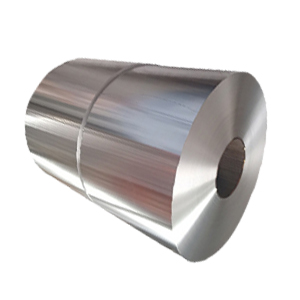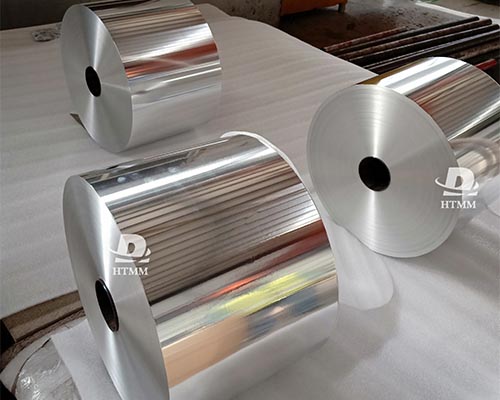
Understanding aluminum foil grades and specifications
One of the first things to understand when shopping for an 8011 aluminum foil supplier is the different grades and specifications of aluminum foil available. Aluminum foil is categorized according to its thickness, measured in hundredths of a millimeter. Some common grades used for food packaging and other commercial applications include:
8011 aluminum foil: This is a very popular grade that is 0.0011 inches or 0.008 mm thick. It provides excellent strength and formability for wrapping and lining applications while maintaining a reasonable price point.
.jpg)
1050 aluminum foil: Slightly thicker at 0.0013 inches or 0.010 mm, 1050 foil offers enhanced barrier properties for heavier duty uses like container lining.
1230 aluminum foil: At 0.0015 inches or 0.012 mm thickness, 1230 foil has very high strength for demanding uses such as heavy duty bagging and wrapping of irregular items.
Other specifications that may be important to check with suppliers include coil width, length, and weight. For large format rolls, widths of 20-30 inches are common. Foil can be supplied in lengths up to several thousand linear feet on each roll. Weight should match the stated thickness grades precisely.

Evaluating supplier experience and reputation
Among the most crucial factors for ensuring a quality aluminum foil supply is choosing a supplier with a proven track record in the industry. Look for companies that have many years of expertise manufacturing and supplying aluminum foil on an industrial scale. Some aspects to consider include:
Years in business: Reputable foil suppliers typically have 15+ years of experience. Newer companies may not have fully developed supply chain reliability.
Product quality certifications: Leading suppliers maintain certifications like ISO 9001 for quality management. This demonstrates a commitment to consistent, high standards.
Customer base: Premier companies serve major national and multinational consumer brands. They have expertise meeting exacting specifications.
Manufacturing process: Opt for suppliers with in-house, state-of-the-art foil rolling mills rather than those that source materials. This allows for tighter quality control.
Delivery consistency: Reliable suppliers have well-established logistics to consistently deliver large roll quantities on schedule without delays.
Checking references from existing customers can validate a supplier’s credentials for on-time performance, product quality, and customer service responsiveness over many years of deliveries. Unsatisfactory references should raise a red flag.

Ensuring product quality control capabilities
Product quality is paramount when choosing an aluminum foil supplier, as roll goods will be directly contacting food products in many applications. Look for these key quality control factors:
Dimensional accuracy testing: Suppliers should conduct thickness gauge measurements with calibrated equipment to ensure foil lies within the stated tolerances.
Surface inspection: The foil surface must be free of defects like pits, edges, streaks, and foreign contaminants that could flake off into packaged items.
Tensile strength testing: Random samples are tested to failure to guarantee the stated tensile strength minimums are consistently achieved batch-to-batch.
Material certification: Suppliers providing certified material will undergo periodic audits to ensure quality programs are properly implemented and maintained over the long term.
Responsiveness to quality issues: Ask about the claims process and ensure they have a dedicated technical team available should problems unexpectedly occur.

Suppliers achieving certifications like ISO 9001 demonstrate their quality procedures have been evaluated and verified by an accredited third party. Plant tours also allow personally verifying how quality is built into the production process from start to finish.

Investigating production capabilities and lead times
For companies relying on aluminum foil for large format or specialty packaging runs, it’s important the supplier has the expertise and flexibility to meet dynamic production needs. Key manufacturing factors to explore include:
Roll sizes: Can they supply the jumbo widths and lengths required? Breadth of roll capabilities shows scale and experience handling bulk quantities.
Custom slit widths: Some applications may require non-standard widths. Gauge their proficiency with tight width tolerance slots.
Rush capability: Emergency needs happen. Evaluate rapid turnaround capacities including expedited material acquisition.
Minimum order quantities: Ensure MOQs will not cause production delays or excess inventory carrying costs for typical order volumes.
Compatible polymers: Ask about coating, laminating, and combined packaging solution development collaborations.
Sample testing: Suppliers should accommodate design testing with sample rolls without fee or delay to support new product development.
Lead times: Standard lead times of 2-4 weeks are typical but validate with current production schedules to plan accurately.
Thoroughly vetting these production-oriented factors confirms the supplier has the flexibility and scalability to support both present and future changing needs.

Assessing pricing structure and total costs
You’ll also want to get a realistic idea of the total delivered cost of aluminum foil from potential suppliers. Key considerations include:
Base material prices: Look for competitive market pricing based on current index rates. Well-established suppliers will less likely increase unexpectedly.
Additional charges: Be clear on fees for custom slit widths, shorter lead times, pre-paid shipping/palletization, etc. Avoid hidden costs.
Freight terms: Compare FOB, FCA, and delivered pricing. Know who is responsible for transport arrangement and costs.
Payment terms: Net 30 days is standard, but ensure terms align with cash flow needs. Don’t overlook potential volume or exclusivity discounts too.
Surcharges: Fuel or tariff surcharges are reality. Make sure communication policies are transparent for these unforeseen costs.
Total cost of ownership: Consider expenditure over successive projects to get the clearest lifetime value of materials. Quality leads to downsteam cost benefits.
With open communications and timely budgetary quotes for sample project requirements, suppliers can be objectively compared on overall affordability.

Evaluating supplier relationships and communication practices
Finally, choosing an aluminum foil supplier is as much about developing a long term trusted partnership as it is the physical materials themselves. Consider these relationship factors:
Customer service approachability: Get a feel for ease of reaching tech sales representatives to enable fast resolution of issues or supply changes.
Proactive communications: Dependable suppliers will actively share market intelligence, solution strategies, new innovations to continually add value beyond just fulfilment.
Collaboration transparency: The most trustworthy partners are open about the full supply chain from production to know their capabilities and limitations transparently.
Reliability for future needs: Do they view the relationship as a long term one and structure sales strategies accordingly rather than immediate transactional gains?
Industry knowledge sharing: Learning opportunities like facility tours and technical seminars help stay informed of opportunities beyond standard products too.
Local presence: In-market inventory investments and service networks ensure minimal lead times and fast emergency support.

Solidifying an aluminum foil supplier as a resource extends well beyond the first order. A partnership defined by mutual benefit through learning and reliability is most sustainable in fluctuating market conditions.

In summary, carefully vetting suppliers based on production expertise and quality focus, pricing transparency, and commitment to long term collaboration forms the basis of choosing the right 8011 aluminum foil jumbo roll provider to consistently meet present and evolving needs. With due diligence upfront, companies can streamline material procurement for enhanced packaging operations and product protection for many years to come.

